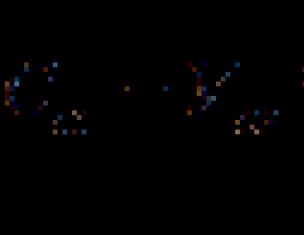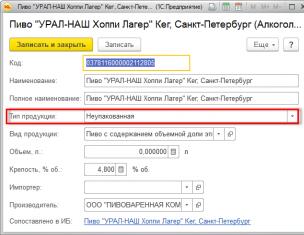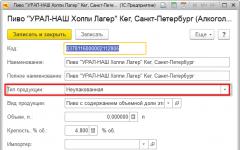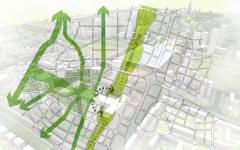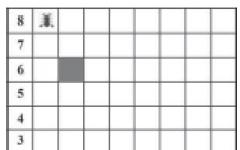CHISINAU, May 29 - RIA Novosti. Relations between Russia and Moldova, which began to improve after the victory of Igor Dodon in the presidential elections, suffered a sensitive blow: on Monday, Chisinau sent a note to the Russian Embassy demanding that five diplomats leave the country within 72 hours.
Officially, neither the Ministry of Foreign Affairs nor the government of Moldova announced such a decision. Information about the declaration of persona non grata for Russian diplomats was confirmed by the Russian Ambassador to Chisinau Farit Mukhametshin and the official representative of the Russian Foreign Ministry Maria Zakharova. This step, according to Moscow, indicates an internal political crisis in Moldova and is directed against Dodon’s course towards rapprochement between the two countries.
The President is outraged
The President of Moldova immediately responded to the gesture of the Moldovan government.
“The government has made an outrageous gesture towards the Russian Embassy in Moldova. Today the ambassador was demanded that five Russian diplomats leave Moldova within 72 hours. I would like to state that I am deeply outraged by this unfriendly step on the part of representatives of Moldovan diplomacy and condemn it in the most categorical manner,” - said Dodon.
Dodon also said that supporters of unification with Romania (Eurounionists) are irritated by his successes as president “and decided to engage in direct provocations, which carry the risk of a significant deterioration” in Moldova’s relations with Russia.
Dodon warned that the government’s decision “to get involved in the geopolitical games of Brussels and Washington, as well as the games of NATO military structures in this region is very dangerous.”
“I am sure that they do not understand what price our country will have to pay and what a difficult and risky situation they can put our country and our people in. They took this rude step, which will not remain without negative consequences,” Dodon noted.
Russia will respond
Reacting to Chisinau’s move, the official representative of the Russian Foreign Ministry, Maria Zakharova, noted that “the situation is paradoxical, but indicative - it is obvious that it has nothing to do with the work of Russian diplomats, but demonstrates the development of the situation in Moldova.”
As Deputy Foreign Minister of the Russian Federation Grigory Karasin said, Moscow will adequately respond to Chisinau’s actions to expel diplomats; Russia views these steps as a direct provocation of individual forces of Moldova against the course of President Igor Dodon. “We will think about an adequate response, but it will follow,” Karasin told RIA Novosti.
“Naturally, this is very bad news for bilateral Russian-Moldavian relations, this is well understood by those structures that thought through and planned this unfriendly action,” added the senior Russian diplomat.
Member of the Federation Council Committee on International Affairs Igor Morozov said that it is impossible not to respond to such an anti-Russian step. “Symmetrical measures will be taken here, followed by the expulsion of Moldovan diplomats,” Morozov told RIA Novosti.
This is not the first unfriendly gesture from the Moldovan government. Earlier, representatives of the Cabinet of Ministers and the Parliament of Moldova, at a meeting with the Russian Ambassador, handed over a note that described how officials of the republic are stopped at the entrance to the Russian Federation, allegedly “interrogated, searched, and suffered humiliation by representatives of the Russian special services.” The Russian ambassador was informed that “until this problem is resolved, Moldovan officials will be asked to refrain from traveling to the Russian Federation.” Dodon then also condemned the actions of the Moldovan authorities.
Struggle in power
The State Duma believes that the decision to expel Russian diplomats has nothing to do with relations between the two countries, but rather the internal political crisis in Moldova.
“It is connected exclusively with the intensification of the struggle between the president, on the one hand, and the government formed by parliament, on the other. It is obvious that this struggle has spilled over into interstate relations, and once again indicates that it is becoming increasingly acute,” the first one told RIA Novosti Deputy Chairman of the State Duma Committee on CIS Affairs Konstantin Zatulin.
The head of the international committee of the Federation Council, Konstantin Kosachev, also noted that this “is very similar to the ongoing struggle between the presidential and government branches of government.”
“This decision is obviously aimed at disrupting the emerging progress in Russian-Moldovan relations, associated with the rise of Mr. Dodon to the position of president,” Kosachev told RIA Novosti.
According to Kommersant, among the five Russian diplomats whose expulsion was announced by Chisinau is the assistant military attache of the Russian Embassy in Moldova, Alexander Grudin.
In spite of the normalization of relations
In June 2014, Moldova signed an association agreement and a comprehensive free trade area with the EU. After the ratification of this agreement by the Moldovan parliament, relations between the two states worsened. According to the agreement, Moldova must fully open its market to European goods.
In his election program, Dodon repeatedly declared his intention to restore the strategic partnership with Russia, return Moldovan products to the Russian market and normalize cooperation in the energy sector. Having assumed the presidency on December 23, 2016, he made several official visits to Moscow and held a number of meetings with Russian leader Vladimir Putin. As a result, the parties reached agreements on migration policy and export supplies. Since the beginning of the year, Moldovan exports to Russia have increased by 40%, the problems of Moldovan labor migrants, the vast majority of whom - more than half a million people - work in Russia, are being resolved.
Former Prime Minister of Moldova, head of the country's Socialist Party, Zinaida Greceanaya, told RIA Novosti that the decision of the Moldovan Foreign Ministry to expel Russian diplomats goes against the actions of the president of the republic.
“You can’t joke with such things, because the response can be completely different. We want to be friends. We need to restore friendly relations with the Russian Federation, and not quarrel, as the current authorities (government - ed.) do,” Grechanaya told RIA Novosti .
She expressed the hope that “wisdom will prevail and the Moldovan people will not suffer from the rash steps of our authorities.” The politician added that only now, through the efforts of Dodon, relations between the republic and Russia began to gradually normalize.
12:39 — REGNUM The expulsion of Russian diplomats from Moldova is “a disgusting, unfriendly act committed by [the leader of the ruling Democratic Party] Plahotniuc and his system of “Moldovan power,” said the leader of the Moldovan opposition “Our Party”, mayor of Balti Renato Usatii, the correspondent reports IA REGNUM.
Usatii noted that on the same day that Russian diplomats were declared persona non grata, the formal president, prime minister and speaker of parliament voiced a common position on the Transnistrian settlement. “In the press communications, written as a carbon copy, Dodon, Candu and Philip were the authorities and the “top leadership”, but after an hour or two one of them [Dodon] was asked to be the opposition, cowardly and unconvincing. And, of course, Dodon did not pronounce the name of the author of the diplomatic scandal, again designating Plahotniuc as plural the word “European Unionists,” noted the leader of Our Party.
“The panic, hypocrisy and servility of this so-called president are harming the country,” the politician continued. “His main crime is that he does not take any measures against Plahotniuc and does not intend to do so. Dodon not only does not fight him, but shields him in every possible way. And now he blames everything on the “West,” saying that the expulsion of diplomats could have been inspired “from overseas.” At the same time, knowing full well about the game of Plahotniuc, who is based on the contradictions between East and West, scaring the “Washington and Brussels regional committees” with “Russian tanks.” Watching this game to destroy Moldova, Dodon quietly continues to play his role: he appoints Plahotniuc’s judges, provides him with control over Moldova-Gaz, and helps change the electoral system. Without declaring war on Plahotniuc, he is accompanying Moldova to the edge of the abyss.”
“A real president, and even one who calls himself pro-Russian, should have called a spade a spade: Plahotniuc is expelling diplomats and measures must be taken against him personally,” Usatii believes. — For example, terminate the contract with the oligarch for rebroadcasting Channel One (The Russian First Channel in Moldova rebroadcasts the Prime TV channel, owned by Plahotniuc - approx. IA REGNUM) , thanks to which the entire Plahotniukov media dump feeds; deprive him of control over Moldova-gaz (a joint Moldovan-Russian enterprise controlled by Gazprom is headed by Plahotniuc’s man Vasile Botnari - approx. IA REGNUM) , to investigate the legality of Plahotniuc’s acquisition of Russian citizenship. But the Moldovan president does not demand any of this. He is in complete consensus with the oligarchic clan, content with the opportunity to engage in PR at the expense of Plahotniuc’s provocations. The current one will last for a long time: Dodon will brand “Eurounionists”, talk about the machinations of Washington, and in early June, from the rostrum of the St. Petersburg International Economic Forum, he may even declare himself a Moldovan fighter against the corrupting influence of the West. He is allowed to do this (the main thing is not to pronounce that very last name), because Plahotniuc is happy to use Dodon’s speeches to convince his interlocutors from the EU and the USA of the reality of the Russian threat. This is the game. The problem is that it is being carried out only to keep Plahotniuc in power, and the longer he makes progress in this game, the worse it is for the country,” Usatii concluded.
The Party of Communists of Moldova also issued a statement noting that the expulsion of Russian diplomats is “an unprecedented demarche that in one way or another benefits all “partners in power” - both the Democratic Party and the Socialist Party.” “The Democratic Party confirms its reputation as an “anti-Russian” and, therefore, according to current geopolitical logic, a pro-European, pro-Western political force. The Socialist Party and the so-called “President” Dodon receive additional features for cheap PR as a “pro-Russian” force. The government of the Democratic Party is bending over backwards to restore the financial favor of the European Commission and unfreeze 100 million in “aid” to the Republic of Moldova. The so-called president and de facto leader of the Socialist Party, Dodon, hopes that in the heat of the next geopolitical scandal, his agreement with the PDM regarding changes to the Electoral Code will be forgotten,” the PCRM statement says.
“We note with regret that both the so-called “democrats” and the so-called “socialists” are extremely interested in the split of Moldovan society along geopolitical lines, which will certainly worsen after the scandalous step against Russian diplomats. We remind you that according to the Constitution of the Republic of Moldova foreign policy state is the prerogative of the president of the country. And, if Dodon considers himself president, then the anti-Russian demarche of the Moldovan authorities is also on his conscience,” the communists note.
And they remind you that the current Moldovan government was finally formed as anti-Russian after Dodon elected Russophobe and unionist Nikolai Timofti to the post of president: “Dodon has repeatedly lent his shoulder and maintained anti-Russian power in Moldova. In 2012, in violation of the current legislation, Nikolai Timofti was elected with his hands, which allowed anti-Russian forces to avoid early elections, in which they would inevitably lose. In 2016, he directly participated in the constitutional coup, which helped to reduce the intensity of mass protests that could have ended with the removal of anti-Russian forces from power. Today, by voting together with the ruling Democratic Party for a mixed system of parliamentary elections, Dodon is once again helping the anti-Russian PDM retain power after 2018. Indeed, despite different “geopolitical preferences” on the main issue of domestic politics, the issue of changing the voting system, Dodon’s “socialists” and Plahotniuc’s “democrats” continue to act in concert.”
The Party of Communists emphasizes that the actions of the Moldovan authorities towards Russia are absolutely satisfactory for both Dodon and the socialists, as well as “the further split of Moldovan society for the usurpation of power, which is carried out in full agreement by the democrats and socialists.”
As reported IA REGNUM, Moldovan authorities on May 29 declared five employees of the Russian Embassy in Chisinau persona non grata. The Russian Ambassador in Chisinau, Farit Mukhametshin, was demanded that Russian diplomats leave Moldova within 72 hours. The reasons for the decision are not stated.
Moldavian President Igor Dodon condemned the “outrageous gesture towards our strategic partner Russian Federation" However, the president, who has decorative powers in Moldova, cannot do anything in this regard except express indignation.
The Russian Foreign Ministry called Moldova’s demarche a paradoxical situation characteristic of the internal situation in the republic itself. It has not yet been announced what Moscow's response measures will be.
Dodon called it outrageous
Moldova's Ministry of Foreign Affairs and European Integration said on Monday that five Russian diplomats have been declared persona non grata and will be expelled from the country. So far there are no details and the names of the Russians have not been named. Moldovan President Igor Dodon called it an “outrageous act.”
The Moldovan Foreign Ministry told reporters on Monday that five diplomats from the Russian Embassy were being expelled from the country. As TASS reports, the corresponding note has already been sent to the Russian diplomatic mission.
The Russian Ambassador to Moldova Farit Mukhametshin confirmed that the relevant document has been received and is now being studied. “We won’t comment on anything for now,” he said.
The press secretary of the Ministry of Foreign Affairs and European Integration of Moldova, Anna Samson, did not disclose the names of the Russian diplomats declared persona non grata. The Russian embassy promised to name names, but will do so later.
President of Moldova Igor Dodon stated that the Moldovan authorities “committed an outrageous act against the Russian Embassy in the republic.” He also said that the Moldovan government is demanding that Russian diplomats leave the country within 72 hours. Dodon emphasized that he himself is deeply outraged by the declaration of persona non grata by Russian diplomats and condemns such actions of the government.
As reported by RIA Novosti, a member of the Federation Council Committee on International Affairs, Igor Morozov, commenting on this news, noted that Moldova made this decision under the influence of Western intelligence services. In his opinion, this is a response to Dodon’s attempts to improve relations with Russia.
Russian diplomatic representatives must leave Moldova within 24 hours. This was stated by the press secretary of the Ministry of Foreign Affairs and European Integration of Moldova Anna Samson, reports TASS. The corresponding note was handed over to the Russian Embassy today.
Ambassador Farit Mukhametshin confirmed this information, which concerns five Russian diplomats. He did not name their names or comment on this decision of the Moldovan Foreign Ministry.
Farit Mukhametshin: “The document is under study. We can’t comment on anything at this time.”
However, it is known that among the diplomats who are expelled from the country is the assistant military attache of the Russian Embassy in Moldova, Alexander Grudin, Interfax reports. In March of this year, Moldova’s special services publicly accused him of recruiting and receiving secret information from ex-member of the country’s parliament, Yuri Bolboceanu. Bolboceanu himself was arrested on March 17. He is accused of treason and espionage. He faces 12 to 20 years in prison.
Over the past few days, this is the second expulsion of Russian diplomats from the former Soviet republics. Russian diplomats Dmitry Kazennov and Andrey Surgaev until the end of May.
Meanwhile, Moldovan President Igor Dodon said that the government’s decision to declare Russian diplomats persona non grata is a direct provocation, RIA Novosti reports.
Igor Dodon: “I understand that the Eurounionists are irritated by the president’s successes achieved in recent months and have decided to engage in direct provocations, which carry the risk of a significant deterioration in Moldovan-Russian relations.”
Dodon warned the government that the Cabinet of Ministers had decided to get involved in the “geopolitical games” of Brussels and Washington, and the “games” of NATO military structures are very dangerous.
Igor Dodon: “I am sure that they do not understand what price our country will have to pay and what a difficult and risky situation they can put our country and our people in. They took this rude step, which will not remain without negative consequences.”
The official representative of the Russian Foreign Ministry, Maria Zakharova, also commented on the decision to expel diplomats.
Maria Zakharova: “Today the Russian Embassy in Chisinau received a note from the Moldovan Foreign Ministry declaring several Russian diplomats “persona non grata.” Today, statements by the President of Moldova followed, condemning these, in his words, “outrageous actions.”
The situation is paradoxical, but indicative; it is obvious that it has nothing to do with the work of Russian diplomats, but demonstrates the development of the situation in Moldova.”
The Russian Ministry of Foreign Affairs declared five employees of the Moldovan diplomatic mission persona non grata and ordered them to leave the country within three days. The Russian department announced its decision to Moldavian Minister-Counselor Nikolai Myina on May 31.
“The Russian side expressed the hope that Chisinau will realize the counterproductiveness of its unfriendly actions towards the Russian Federation and the destructive nature of the step taken by the Moldovan side, which runs counter to the principles of partnership and mutual trust,” the Russian Foreign Ministry said in a statement.
In turn, Moldovan President Igor Dodon said that after the expulsion of diplomats, Russian-Moldovan relations were on the brink of an abyss.
“In the 25-year history of diplomatic relations between Moldova and Russia, our bilateral relations have never been on the brink of an abyss as they are now. This is what the irresponsible decisions and actions of the Moldovan government and parliamentary majority lead to, taken not in the interests of their people, but based on the geopolitical interests of Western curators,” he wrote in Facebook.
Dodon hopes that other economic and social nature there will be no such thing from Russia. However, this primarily depends on the government. If it continues to escalate tension in Moldovan-Russian relations and provoke a rupture, then “we, the people of the Republic of Moldova, will have our say.”
The expulsion of Moldovan diplomats was a response to the actions of Chisinau, which on May 29 expelled five employees of the Russian diplomatic mission. Prime Minister Pavel Filip explained that the decision was made based on data from local intelligence agencies. He did not specify what information the intelligence services collected. In turn, President of Moldova Igor Dodon condemned this decision, promising that everyone involved in the expulsion will answer according to the law. According to him, the actions of the Moldovan authorities “lead to a threat to the national security of Moldova” (quote from Interfax).
In addition, he called on Moscow “not to succumb to the provocations of the Moldovan authorities” and not to make “emotional decisions.” In response to this, the official representative of the Russian Foreign Ministry, Maria Zakharova, said that Moscow will not yet respond to these actions of Chisinau. “Chisinau needs to decide on its position, regardless of where and what such steps are taken. In response, adequate, mirror and symmetrical measures are always taken,” she said on Wednesday, May 31.
Russian President Vladimir Putin and Igor Dodon may raise the topic of expelling diplomats during a meeting “on the sidelines” of the St. Petersburg International Economic Forum (SPIEF). “There will be a brief meeting during which I think the president will highlight the consequences of such ill-considered steps,” the aide said. Russian President Yuri Ushakov (quote from Interfax).
On March 9, the Russian Ambassador to Moldova Farit Mukhametshin was given a note in which officials of the republic complained about the actions of Russian security forces. As the Moldovan authorities indicated, when entering Russian territory, “Moldavian officials are stopped at the entrance to Russia, interrogated, searched, and humiliated by representatives of the Russian special services.” For the same reason, Speaker of Parliament Andrian Candu and Prime Minister of Moldova Pavel Filip refused all official business trips to Russia.
President Igor Dodon criticized the delivery of the note to the Russian ambassador, saying that “this kind of action had no analogues in the entire history of our interstate relations, and is also inapplicable in diplomatic and international practice.”
Previously unnamed Moldovan officials told Reuters that increased scrutiny of officials Russian border- one of the measures to hinder the investigation into the withdrawal of $22 billion through Moldova. The agency also reported that the arrested Moldovan businessman Vyacheslav Platon could have participated in the money withdrawal scheme, and part of the money could have been used “to promote Russian interests.”



